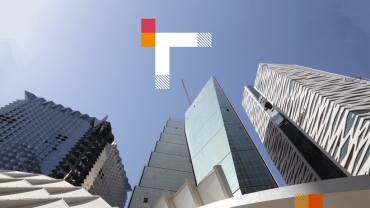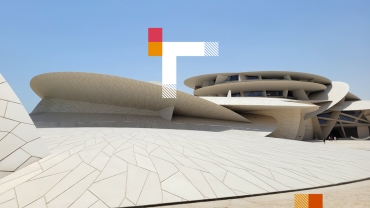
Looking to the future with confidence
26th CEO Survey: Middle East findings
In an otherwise turbulent time for the world economy, Middle East CEOs are shining a beacon of confidence for 2023.

How do Middle East CEOs plan to navigate the year ahead?
Duration: 00:01:52
Middle East CEOs are outliers... they are far more confident than CEOs in territories elsewhere about their own prospects - both on the regional economy and their own businesses.
Watch how regional CEOs plan to meet the challenges of the coming year
In this video series, we take a look at the key themes for the region for 2023.
Listen to the podcast :
PwC 26th CEO survey highlights the sharp shift in business sentiment worldwide in the face of ongoing macroeconomic volatility and geopolitical tensions. Listen to each episode to find out which four key themes emerged from the Middle East findings.
61% of Middle East CEOs remain upbeat about the region’s growth prospects for 2023.
Despite global growth slowing sharply and some economies on the brink of recession, Middle East CEOs remain considerably more positive about the region’s growth prospects for 2023.
Conversely, only 21% of North American CEOs and 18% of Western European CEOs felt confident about the year ahead for their own market.
63% of CEOs in the Middle East are extremely confident or very confident about prospects for their companies’ revenue growth over the next 12 months – almost unchanged from a year ago – and 71% are confident about the outlook for the next three years.
How do you believe economic growth will change over the next 12 months in your territory?

Over half of regional CEOs have already diversified products and services - and a further 37% say they are considering doing so in the next 12 months.
CEOs in the Middle East are actively preparing for a more dynamic period ahead, marked by transformation to strengthen their longer-term resilience — distinctly more so than CEOs globally.
It’s interesting to note what regional CEOs are not doing: again, unlike their global peers, they are not slowing down on investments (58% are not curbing investments in the Middle East compared to 44% globally) or delaying deals (76% are not doing this in the Middle East versus 60% globally).
Their answers do, however, show that this continued optimism is tempered by caution, with more than 70% looking to push through price increases and 84% seeking to reduce operating costs.
What actions, if any, is your company considering to mitigate against potential economic challenges and volatility in the next 12 months?

Your next move:

Further investment is critical, but don’t lose sight of cost control as the global economic context gets harsher

Attracting and retaining talent needs to remain a key focus for the years ahead. Is your company culture attracting the right people?

Supply-chain disruptions are here to stay. How resilient are your procurement capabilities?
84% of regional CEOs are expecting to invest in automation processes and systems in 2023.
Technological disruption heads the list of issues Middle East business leaders believe will affect their industry’s profitability over the next decade.
In response to this, investment in automation will be accompanied by investment in raising workforce skill levels (74%) and in deploying cloud technology, artificial intelligence, and other advanced technology in operations (66%).
Other technologies that are catching CEOs’ attention include the metaverse. Whilst only a relatively small number - just over one in 10 - say they expect this to be a focus of their investment this year, we expect this to increase significantly in the coming years.
Which of the following investments, if any, is your company making in the next 12 months?

Your next move:

Map the skills your workforce has today to the skills they will need in five years, and then focus on closing the gap

Even if you can’t see the relevance of the metaverse for your operations, keep your eye on the next internet generation - Web3 - as it has the potential to prove disruptive across sectors

Automation’s power is as much about raising scale and increasing speed as it is about substituting human labour
Around 50% of Middle East CEOs have either taken steps to mitigate climate risk or are in the process of doing so.
The story on climate has moved on - from talk and reflection to action.
This signals genuine progress since last year, when more than 60% of regional leaders had not made any net-zero or carbon neutral commitments.
Companies are innovating new and climate-friendly products and services and they are simultaneously implementing initiatives to lower their carbon footprint and reduce emissions.
Which statements best characterise the level of progress on actions your company may be undertaking to prepare for the risk of climate change?

Your next move:

ESG reporting is here to stay. Do you have the in-house expertise to do it across all your operations?

Setting an internal carbon price could be an eye-opener—and help speed your company’s transition to net-zero emissions

Climate is just one aspect of a growing corporate focus on natural capital. Do you know how to measure your environmental footprint in relation to nature?
Contact us











